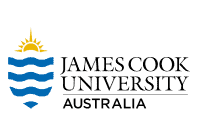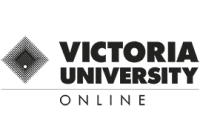Are you a fresh graduate with an MBA degree? Do you want to kickstart your career in one of the world's most promising job markets? Look no further than Australia! With its booming economy and increasing demand for skilled professionals, Australia is an ideal destination for entry-level MBA careers. But what are the top options available to you?
In this article, we'll explore the most lucrative and in-demand MBA career paths in Australia. From finance and marketing to human resources and logistics, we'll delve into the various industries and sectors looking for talented young professionals like you.
So, if you're ready to take the first step in your career and make a mark in the business world, keep reading. Our expert analysis and insights will help you make informed decisions about your future and pave the way for a successful and fulfilling career in Australia. Take advantage of this opportunity to learn from the best and join the ranks of successful MBA graduates in Australia!
Quick Links To Online MBA Degree Programs
Southern Cross University
Master of Business Administration (MBA) Online
- 2 years, Part-time
- 8-16 units
- $2,990 per unit, FEE-HELP available
James Cook University
Master of Business Administration Global (MBA Online)
- 24 months, Part-time
- 12 subjects (One subject per each 7-week study period)
- $3,700 per subject, FEE-HELP is available
Victoria University
Master of Business Administration (Online)
- 2 years Part-time (minimum)
- 12 units (7 weeks)
- $3,650 per unit, FEE-HELP available
University Of New South Wales
MBAX (Finance)
- 2-6 years part-time
- Fee: AUD$5,190
- Commencing Terms
Term 1 – February
Term 2 – June
Term 3 – September
Introduction to Entry-Level MBA Careers
Students who complete a postgraduate programme leading to the Master of Business Administration degree are prepared for positions of leadership in the business sector. Students walk away from the programme with a well-rounded understanding of the many facets of business management, such as accounting, marketing, strategy, and finances.
The course material is structured to assist students in the development of strong analytical, problem-solving, and communication abilities, all of which are needed for success in the corporate world.
Because many of its colleges are regarded among the best in the world, Australia is a very popular destination for students interested in pursuing a Master of Business Administration degree.
Students with a variety of academic backgrounds, such as engineering, the humanities, and the social sciences, enrol in these programmes with the goal of acquiring a deeper comprehension of the fundamentals of business and developing practical abilities applicable to the international marketplace.
Employers in Australia place a high value on a Master of Business Administration (MBA) degree because it gives students the abilities essential to manage difficult business issues and create growth within an organisation.
An MBA degree has a high return on investment since it gives graduates access to attractive job prospects with great earning potential. Since this, getting an MBA is a good choice for people who want to advance their careers more quickly.
Students who are interested in beginning their professional lives in Australia would be wise to invest in earning a Master of Business Administration degree. Students who earn this degree will graduate with an in-depth knowledge of the business world and the hands-on abilities essential for achieving success in today's dynamic and unpredictable corporate climate.
MBA graduates who want to begin their careers in Australia will have a wide variety of options to choose from due to the robust economy and extensive range of business sectors that the country possesses.
The Benefits of an MBA Degree in Australia
Students who get a Master of Business Administration degree from an Australian university are eligible for a variety of opportunities that can assist them in realising their professional ambitions. The following are some of the most important advantages of earning an MBA in Australia:
- Enhanced career prospects: An MBA degree provides students with the necessary skills and knowledge to succeed in their careers. Graduates are equipped with a comprehensive understanding of business principles, including finance, marketing, strategy, and management, making them attractive to employers across a wide range of industries.
- Increased earning potential: MBA graduates in Australia enjoy a higher earning potential compared to those without an MBA degree. According to a report by QS, MBA graduates in Australia can expect to earn an average salary of AUD 98,400, significantly higher than the average salary of AUD 62,500 for those without an MBA degree.
- Networking opportunities: MBA programs in Australia provide students with excellent networking opportunities. Students can interact with their peers, industry leaders, and alumni, which can lead to valuable connections and job opportunities.
- Global perspectives: Australian MBA programs attract students from all over the world, providing students with the opportunity to gain a global perspective on business. Students learn about different cultures, business practices, and economic systems, which can be beneficial when working in a globalised economy.
- Entrepreneurial skills: Many MBA programs in Australia focus on developing students' entrepreneurial skills, providing them with the knowledge and tools to start their own businesses. This can be particularly valuable for students who wish to pursue careers as entrepreneurs or in startup companies.
Students who get a Master of Business Administration degree from an Australian university are eligible for a variety of incentives that can assist them in realising their professional ambitions.
The degree improves employment chances, the potential for earning more, the opportunity for networking, the opportunities to gain a global perspective and the development of entrepreneurial abilities. In light of these advantages, earning a Master of Business Administration degree is a smart investment for students who wish to advance more quickly in their careers.
Popular Entry-Level MBA Careers in Australia
MBA graduates in Australia are in high demand, and they have access to a wide variety of professional prospects. In the United States, the demand for MBA graduates is even higher.
Graduates who have completed an MBA programme are often equipped with the knowledge and abilities necessary to assume leadership roles in a variety of industries, including but not limited to finance, consulting, marketing, operations, and human resources. The following are some of the most common first jobs for graduates of MBA programmes in Australia:
1. Management Consultant
Your role as a management consultant will require you to offer organisations and enterprises in need of guidance with regard to strategic matters. You will assist clients in recognising areas in which they could improve their performance, developing strategies, and putting solutions into action in order to do so. A Master of Business Administration degree can provide you with the critical thinking and problem-solving abilities necessary to excel in this highly competitive industry.
2. Financial Analyst
Through the analysis of financial data and trends in the market, financial analysts guide businesses and other organisations towards more intelligent investment choices. They examine potential prospects for financial investment, build financial models, and devise investment strategies.
A Master of Business Administration degree with a specialisation in finance can provide you with a profound understanding of financial principles as well as analytical skills, all of which are quite valuable in this position.
3. Marketing Manager
You, in the role of marketing manager, will be tasked with conceptualising and putting into action various marketing strategies in order to increase awareness of products and services. You will be responsible for analysing the trends in the market, carrying out research on the market, and developing marketing campaigns to attract and keep customers.
A Master of Business Administration degree (MBA) specialising in marketing can provide you with a more in-depth understanding of the many marketing concepts and tactics.
4. Operations Manager
The day-to-day operations of a company are the responsibility of the operations managers who oversee such operations. They ensure that production, quality control, and management of the supply chain are carried out effectively so that the firm may function effectively. An MBA degree with a specialisation in operations management can give you the required abilities to manage complex operations and drive growth in the organisation. If you are interested in pursuing such a degree, click here for more information.
5. Human Resource Manager
As a human resource manager, you will be responsible for managing the organisation's human resources, including recruitment, training, and employee relations. You will develop and implement human resource policies and procedures to ensure that the organisation has a productive and engaged workforce. An MBA degree with a specialisation in human resource management can give you a deep understanding of human resource concepts and practices, which are highly valued in this role.
Other popular entry-level MBA careers in Australia include investment banking, business development, project management, and entrepreneurship. With an MBA degree, you can gain the skills and knowledge needed to pursue a successful career in these fields.
An MBA degree can open up a world of career opportunities in Australia. Whether you want to become a management consultant, financial analyst, marketing manager, operations manager, or human resource manager, an MBA degree can provide you with the skills and knowledge needed to succeed in your chosen career path. Additionally, an MBA degree with a specialisation in a particular field can give you a competitive advantage in the job market.
How to Prepare for an Entry-Level MBA Career
- Do some research on the job market before enrolling in an MBA programme. It is vital to do some research on the job market before enrolling in an MBA programme in order to understand what kinds of skills and information are in demand. This will allow you to personalise your MBA programme to your professional goals and boost the likelihood that you will find employment in the field of your choice when you graduate from the programme.
- Select a Master of Business Administration (MBA) programme with a good reputation. It is essential to select an MBA programme that is not only recognised but also accredited in the field in which you intend to work. This will both enhance the likelihood of you being hired by a company and the likelihood that the company will recognise your MBA degree.
- The preparation for an entry-level MBA position in Australia requires extensive networking with industry professionals. Networking is an essential component of this preparation. To expand your professional network, you should participate in industry events, join professional groups, and make connections with former students of your MBA programme.
- Acquire relevant work experience: Before applying to an MBA program, many schools need prospective students to have prior work experience. This is due to the fact that Master of Business Administration (MBA) programmes are intended for people who already have some professional experience under their belts and want to go further in their careers. Before applying to an MBA school, it is necessary to get relevant work experience in the industry that you are interested in working in.
- Choose a specialisation: MBA programmes frequently offer specialisations in a variety of sectors, including human resources, marketing, operations, and finance. Choosing a concentration can facilitate the development of in-depth knowledge and abilities in a specific topic, and it can also make you more appealing to potential employers working in that area.
- Develop your soft skills: Employers place a high premium on employees who have "soft skills" such as communication, leadership, and teamwork. MBA programmes frequently offer students the chance to build these skills by participating in group projects, case studies, and leadership development courses. Make the most of these possibilities to improve your soft skills, which will, in turn, raise your chances of getting the job you want.
- After you have finished your MBA program, it is imperative that you prepare for job interviews in order to maximise your chances of success. Do research on the organisation as well as the role that you will be filling, rehearse your answers to typical interview questions, and be ready to discuss how your MBA education has prepared you for the work.
- Consider participating in an internship. Participating in an internship is a fantastic way to acquire hands-on experience in the industry that you're interested in while still finishing your MBA programme. You should look for internship opportunities that are related to your career aspirations and can help you gain relevant skills as well as connections with other people.
- Make use of career services: Many MBA programmes offer career services to help students identify job possibilities, prepare for job interviews, and network with industry professionals. After you graduate, make the most of these resources so that you can increase your chances of getting the job of your dreams.
- LinkedIn is a valuable tool that you can use to grow your professional network and showcase your talents and experience, thus it is important that you have a robust profile on this platform. Construct a robust profile on LinkedIn that highlights your education, work experience, and talents, and then engage with industry professionals to grow your network.
- It would help if you worked on improving your language abilities because the majority of Master of Business Administration programmes in Australia are taught in English, which is the predominant language used in business in Australia. If English is not your first language, it is imperative that you work on developing your language abilities in order to guarantee that you are able to communicate successfully in a professional environment.
- Have an up-to-date knowledge of industry trends: Because the business world is always evolving, it is essential to have an up-to-date knowledge of the latest industry trends and advancements. Staying up to date on the latest news and best practices in your field requires that you subscribe to industry magazines, attend industry conferences and seminars, and participate in professional development opportunities.
- Maintain a flexible mindset: Because the world of business is fast-paced and ever-changing, it is imperative that one maintains a flexible mindset. To keep one step ahead of the competition and achieve success in your entry-level MBA profession, cultivate the capacity to learn new things fast, adapt to novel circumstances, and think creatively.
- Develop a strong work ethic: If you want to be successful in a field that needs an MBA entry-level, you need to have a strong work ethic and a commitment to excellence. Cultivate strong time management skills, operate in an efficient and effective manner, and make it a priority to produce high-quality work that either satisfies or outperforms expectations at all times.
- Seek out a mentor to assist you in navigating the waters of your entry-level MBA career in Australia. A mentor may give you useful insight and support. Try to find people who have a lot of expertise in the same profession as you do and who are willing to share their knowledge with you as well as offer guidance on how to succeed and develop in your career.
Research, education, job experience, networking, and the development of soft skills are all necessary components of the preparation process for an entry-level MBA position in Australia. If you follow these steps, you will be able to improve your chances of getting the job that you want after graduation and put yourself up for a successful career in the field that you have chosen.
You can further prepare for an entry-level MBA career in Australia by following these additional steps, and by doing so, you can boost your chances of being successful in the field that you have selected. Keep in mind that being successful in a field that demands a master's degree in business administration (MBA) involves a combination of education, work experience, networking, and personal growth.
How to Succeed in Entry-Level MBA Careers
In order to be successful in a career that begins with the initial steps of an MBA in Australia, you will need to have a combination of abilities, experience, and qualifications. The following are some helpful hints to ensure your success:
1. Gain Practical Experience Through Internships or Work Experience Programs
One of the best ways to gain practical experience in your field of interest is through internships or work experience programs. These opportunities provide you with hands-on experience in your chosen industry and allow you to develop practical skills that are highly valued by employers.
To find internships or work experience programs, you can search online job boards and company websites or reach out to your university's career centre for assistance. You can also network with industry professionals and attend job fairs and industry events to learn about opportunities.
2. Develop Your Skills in Data Analysis, Report Writing, and Presenting Findings
Data analysis, report writing, and presenting findings are essential skills for MBA graduates. As an entry-level professional, you will be expected to analyze data, identify trends, and provide insights and recommendations based on your findings.
To develop these skills, you can take courses in data analysis, statistics, and business writing. You can also participate in group projects, case studies, and presentations to gain practical experience in these areas.
3. Build Your Network Through Networking Events, Industry Conferences, and Professional Organisations
Networking is an essential part of career development for MBA graduates. Building a strong professional network can help you learn about job opportunities, gain industry insights, and make valuable connections that can lead to career advancement.
To build your network, you can attend networking events, industry conferences, and professional organisations. You can also connect with industry professionals on LinkedIn and participate in online forums and discussion groups.
4. Consider Further Qualifications, Such as Professional Certifications or a PhD
While an MBA is a valuable qualification, further qualifications can help you stand out in a competitive job market. Professional certifications, such as the Certified Management Consultant (CMC) or Chartered Financial Analyst (CFA), can demonstrate your expertise and commitment to your field.
If you are interested in pursuing an academic career or advanced research in your field, you may consider pursuing a PhD in business or a related field.
5. Stay Up-To-Date With the Latest Industry Trends and Developments
Staying up-to-date with the latest industry trends and developments is essential for career success in any field. By keeping abreast of changes and innovations in your industry, you can adapt your skills and knowledge to meet changing demands and stay ahead of the curve.
To stay up-to-date, you can read industry publications, attend conferences and seminars, and participate in online forums and discussion groups.
By following these tips, you can increase your chances of success in an entry-level MBA career in Australia. With the right combination of skills, experience, and qualifications, you can build a rewarding and fulfilling career in a dynamic and exciting field.
Bottom Line
In conclusion, earning a Master of Business Administration degree in Australia can provide access to a diverse array of rewarding professional prospects. There has never been a better time to launch your professional life in Australia with an MBA than now, thanks to the fast-expanding economy and the robust job market. The alternatives are virtually limitless across all departments, including human resources, finance, and marketing.
However, before beginning the hunt for a career, it is important to have a solid understanding of the kinds of entry-level opportunities that are open to MBA graduates in Australia. Management Consultant, Business Analyst, Marketing Coordinator, Financial Analyst, and Operations Manager are just a few of the popular entry-level professions that are now available. These positions not only give a pay that is comparable to others in the industry, but they also provide a wealth of options for professional development and promotion.
To that end, would you say you're prepared to go to the next level of your career? Investigate the fascinating entry-level MBA career options in Australia, and start the search for your ideal job right away.
Which MBA entry-level career are you most interested in pursuing in Australia, and why is that position of particular interest to you? Leave a comment below with your views and opinions!
Content Summary
- With its booming economy and increasing demand for skilled professionals, Australia is an ideal destination for entry-level MBA careers.
- From finance and marketing to human resources and logistics, we'll delve into the various industries and sectors looking for talented young professionals like you.
- Students interested in beginning their professional lives in Australia would be wise to invest in earning a Master of Business Administration degree.
- Students who get a Master of Business Administration degree from an Australian university are eligible for a variety of opportunities that can assist them in realising their professional ambitions.
- Enhanced career prospects: An MBA degree provides students with the necessary skills and knowledge to succeed in their careers.
- In light of these advantages, earning a Master of Business Administration degree is a smart investment for students who wish to advance more quickly in their careers.
- Your role as a management consultant will require you to offer organisations and enterprises in need of guidance with regard to strategic matters.
- You, in the role of marketing manager, will be tasked with conceptualising and putting into action various marketing strategies to increase awareness of products and services.
- An MBA degree with a specialisation in operations management can give you the required abilities to manage complex operations and drive growth in the organisation.
- An MBA degree with a specialisation in human resource management can give you a deep understanding of human resource concepts and practices, which are highly valued in this role.
- With an MBA degree, you can gain the skills and knowledge needed to pursue a successful career in these fields.
- An MBA degree can open up a world of career opportunities in Australia.
- Whether you want to become a management consultant, financial analyst, marketing manager, operations manager, or human resource manager, an MBA degree can provide you with the skills and knowledge needed to succeed in your chosen career path.
- Additionally, an MBA degree with a specialisation in a particular field can give you a competitive advantage in the job market.
- Do some research on the job market before enrolling in an MBA programme.
- Select a Master of Business Administration (MBA) programme with a good reputation It is essential to select an MBA programme that is not only recognised but also accredited in the field in which you intend to work.
- The preparation for an entry-level MBA position in Australia requires extensive networking with industry professionals.
- Before applying to an MBA school, it is necessary to get relevant work experience in the industry that you are interested in working in.
- After you have finished your MBA program, it is imperative that you prepare for job interviews in order to maximise your chances of success.
- Consider participating in an internship.
- Construct a robust profile on LinkedIn that highlights your education, work experience, and talents, and then engage with industry professionals to grow your network.
- It would help if you worked on improving your language abilities because the majority of Master of Business Administration programmes in Australia are taught in English, which is the predominant language used in business in Australia.
- If English is not your first language, it is imperative that you work on developing your language abilities in order to guarantee that you are able to communicate successfully in a professional environment.
- Have an up-to-date knowledge of industry trends: Because the business world is always evolving, it is essential to have an up-to-date knowledge of the latest industry trends and advancements.
- Develop a strong work ethic: If you want to be successful in a field that needs an MBA entry-level, you need to have a strong work ethic and a commitment to excellence.
- Seek out a mentor to assist you in navigating the waters of your entry-level MBA career in Australia.
- Research, education, job experience, networking, and the development of soft skills are all necessary components of the preparation process for an entry-level MBA position in Australia.
- You can further prepare for an entry-level MBA career in Australia by following these additional steps, and by doing so, you can boost your chances of being successful in the field that you have selected.
- Keep in mind that being successful in a field that demands a master's degree in business administration (MBA) involves a combination of education, work experience, networking, and personal growth.
- One of the best ways to gain practical experience in your field of interest is through internships or work experience programs.
- Data analysis, report writing, and presenting findings are essential skills for MBA graduates.
- While an MBA is a valuable qualification, further qualifications can help you stand out in a competitive job market.
- If you are interested in pursuing an academic career or advanced research in your field, you may consider pursuing a PhD in business or a related field.
- Staying up-to-date with the latest industry trends and developments is essential for career success in any field.
- To stay up-to-date, you can read industry publications, attend conferences and seminars, and participate in online forums and discussion groups.
- By following these tips, you can increase your chances of success in an entry-level MBA career in Australia.
- With the right combination of skills, experience, and qualifications, you can build a rewarding and fulfilling career in a dynamic and exciting field.
- In conclusion, earning a Master of Business Administration degree in Australia can provide access to a diverse array of rewarding professional prospects.
- There has never been a better time to launch your professional life in Australia with an MBA than now, thanks to the fast-expanding economy and the robust job market.
- However, before beginning the hunt for a career, it is important to have a solid understanding of the kinds of entry-level opportunities open to MBA graduates in Australia.
- Investigate the fascinating entry-level MBA career options in Australia, and start the search for your ideal job right away.
Frequently Asked Questions
The average salary for entry-level MBA careers in Australia varies depending on the industry, role, and location. However, according to Payscale, the average salary for an entry-level management consultant is around AUD 75,000 per year.
While work experience can be beneficial, it is not always required for entry-level MBA jobs in Australia. Many employers offer internships or work experience programs to help graduates gain practical experience.
Yes, you can start your business as an entry-level MBA graduate in Australia. However, entrepreneurship comes with significant risks and requires a solid business plan, funding, and a strong understanding of your target market.
Some industries that offer the most entry-level MBA career opportunities in Australia include management consulting, finance, marketing, human resources, and operations management.
Some of the best business schools in Australia for MBA programs include the Australian Graduate School of Management, Melbourne Business School, and the University of Queensland Business School.







